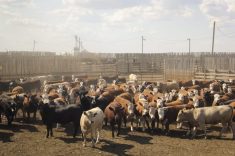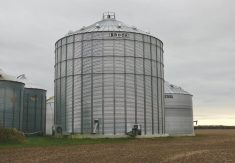A World Trade Organization panel’s ruling criticizing the U.S. government’s country-of-origin labelling (COOL) law is now under appeal from both sides of the table.
The WTO last week reported receiving formal notice that Canada, like the U.S., plans to appeal parts of last November’s ruling from the WTO Dispute Settlement Body (DSB).
The U.S. filed its appeal on March 23, seeking to overturn the DSB’s ruling that COOL violates Washington’s WTO obligations and "does not fulfil its legitimate objective" of consumer education.
Read Also

U.S. grains: Soybeans continue gains on Trump’s China comments
Chicago | Reuters – Chicago Board of Trade soybeans continued a three-day rally on Friday, fuelled by President Donald Trump’s…
Canada, however, wants to shut down the part of the DSB’s ruling that implies COOL’s main objective was legitimate in the first place.
Canada’s appeal, dated March 28, disputes the DSB’s view that the panel was supposed to identify a "potential" objective of COOL rather than its "actual" objective.
It also disputes the DSB’s finding that COOL’s objective is legitimate within the WTO Agreement on Technical Barriers to Trade.
The DSB, Canada said in its notice of appeal, alleges the DSB panel failed to make an "objective assessment of the facts demonstrating that the objective of the COOL measure is protectionism."
If, on the other hand, COOL’s objective isn’t actually protectionism, Canada claims the DSB "erred by failing to define the objective at a sufficiently detailed level," the WTO said last week.
"Alternative measures"
If the WTO’s Appellate Body — which hears WTO members’ appeals — rejects the DSB’s finding that COOL fails to fulfil a legitimate objective, Canada then wants a ruling from the Appellate Body stating "there are less trade-restrictive alternative measures" the U.S. could use to meet COOL’s objective.
If such alternative measures are available to the U.S., Canada says, then COOL violates the Agreement on Technical Barriers to Trade.
COOL, conceived in Washington’s 2002 Farm Bill and launched in 2008, orders U.S. retailers to notify customers, by way of labeling, on the sources of foods such as beef, veal, pork, lamb, goat, fish, fruits, vegetables, peanuts, pecans and macadamia nuts.
Both Canada and Mexico have long contended that COOL violates international trade laws, restricts market access and is a technical trade barrier.
Canadian livestock groups have long said COOL forces unnecessary costs on U.S. processors, who now have to segregate Canadian animals and meat for labelling purposes, or limit their imports from Canada.
The DSB panel ruled in November that COOL is "inconsistent with the United States’ WTO obligations" and unfairly affords "less favourable treatment to imported Canadian cattle and hogs than to like domestic products."
The Canadian Cattlemen’s Association has said it expects an oral hearing before the Appellate Body on the U.S. appeal to happen later this month or early May. The Appellate Body generally has up to three months to finish a report after such hearings.
Related stories:
U.S. to appeal WTO’s COOL ruling, March 23, 2012
WTO rips U.S. COOL law in win for Canada, Nov. 18, 2011
Canada’s data undisputed on damages following COOL, Sept. 18, 2010














